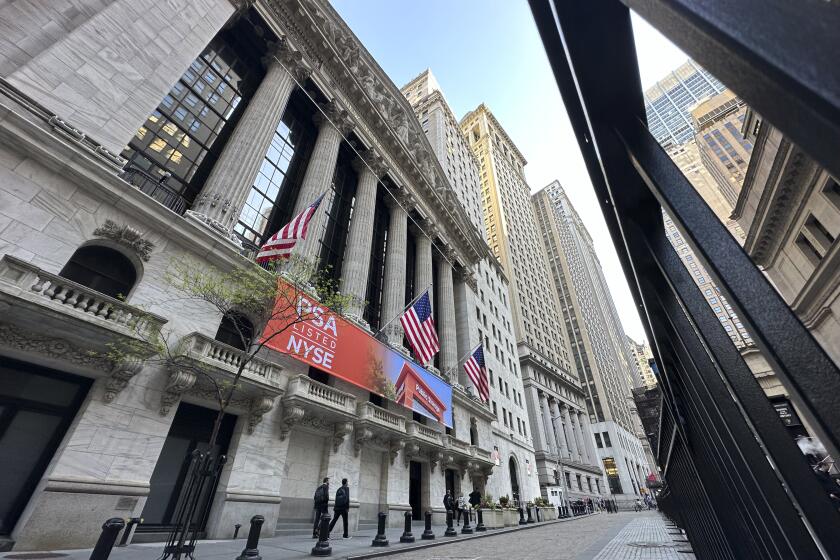6 on Board of Trade Tied to Firms With Big Soybean Stakes
Six directors of the Chicago Board of Trade, which forced a sharp reduction in soybean futures trading in a dispute with a big Italian firm, are affiliated with companies whose customers could have lost large amounts of money if trading had continued without restrictions, federal regulators disclosed Friday.
The Board of Trade is involved in a bitter legal dispute with Ferruzzi Finanziaria S.p.A., an Italian company that held futures contracts calling for 23 million bushels of soybeans when the actual supply in warehouses was an estimated 12 million bushels.
Took ‘Short’ Positions
In July, the Board of Trade ordered all traders to reduce their contracts to 1 million bushels, a step that sent the price of soybeans plummeting, costing Ferruzzi millions of dollars.
Some of the Board of Trade directors were connected with firms that took “short” positions in soybeans, meaning that they sold soybeans that they did not yet own for delivery at a future date. Since Ferruzzi controlled so much of the supply, the short sellers presumably would be unable to deliver the soybeans as promised. Ferruzzi could have held out for a virtually unlimited price from the short sellers.
Six Board of Trade directors who voted to take action against Ferruzzi were connected to firms dealing in the soybean markets, according to a report by the Commodity Futures Trading Commission.
The CFTC report was issued in response to a series of questions by Sen. Patrick Leahy (D-Vt.), chairman of the Senate Agriculture Committee. Leahy made the report public Friday, along with a sharp criticism of the handling of the issue by the Board of Trade.
Vulnerable to Squeeze
“Credibility is paramount for exchanges in carrying out their self-regulatory functions,” said Leahy.
“The public will not tolerate self-dealing or conflict of interest by exchange directors or insiders,” he said. “The CFTC must question those Chicago Board of Trade directors participating in the July soybean decision whose affiliated firms held net short positions in the July soybean contract in house or customers accounts to assure that the decision-making process was not compromised,” Leahy said.
Six of the firms had net short positions in their customer accounts. Their clients were vulnerable to a potential squeeze, or control of the market, in soybeans by Ferruzzi. A seventh director whose firm had a net position did not participate in the vote. The Board of Trade’s action against Ferruzzi was approved by a vote of 17 to one.
The CFTC did not name the firms or directors with soybean positions, referring to them only by letters. The biggest short holdings for customers totaled 2,235,000 bushels at firm “f.”
In addition to the customer accounts, four of the firms held short positions in their own “house” accounts.
Defended Role
The Chicago Board of Trade has told the CFTC that there was no conflict of interest. The directors had “no knowledge of, or influence over, the trading strategies of their affiliated firms,” the CFTC report said. None of the directors personally conducted any trades based on advance information of the exchange’s regulatory action.
The CFTC said it will question the directors about their affiliated firms. However, the CFTC defended the role of directors in such self-regulating enterprises as the Board of Trade.
“The public policy of permitting traders to participate on an exchange governing board recognizes the contributions of their expertise and the interest and obligation of such board members in maintaining market integrity,” the CFTC said. “The actions of exchange boards are governed by at least two key legal duties which must be balanced: their duty to manage the marketplace, and their duty to act in good faith.”
The Chicago Board of Trade officials suspected Ferruzzi was trying to corner the soybean market. However, the firm, a giant agricultural and business conglomerate, insisted that it needed the soybeans, and accused the Board of Trade of discriminating against foreign firms. Ferruzzi has sued the Board of Trade.






